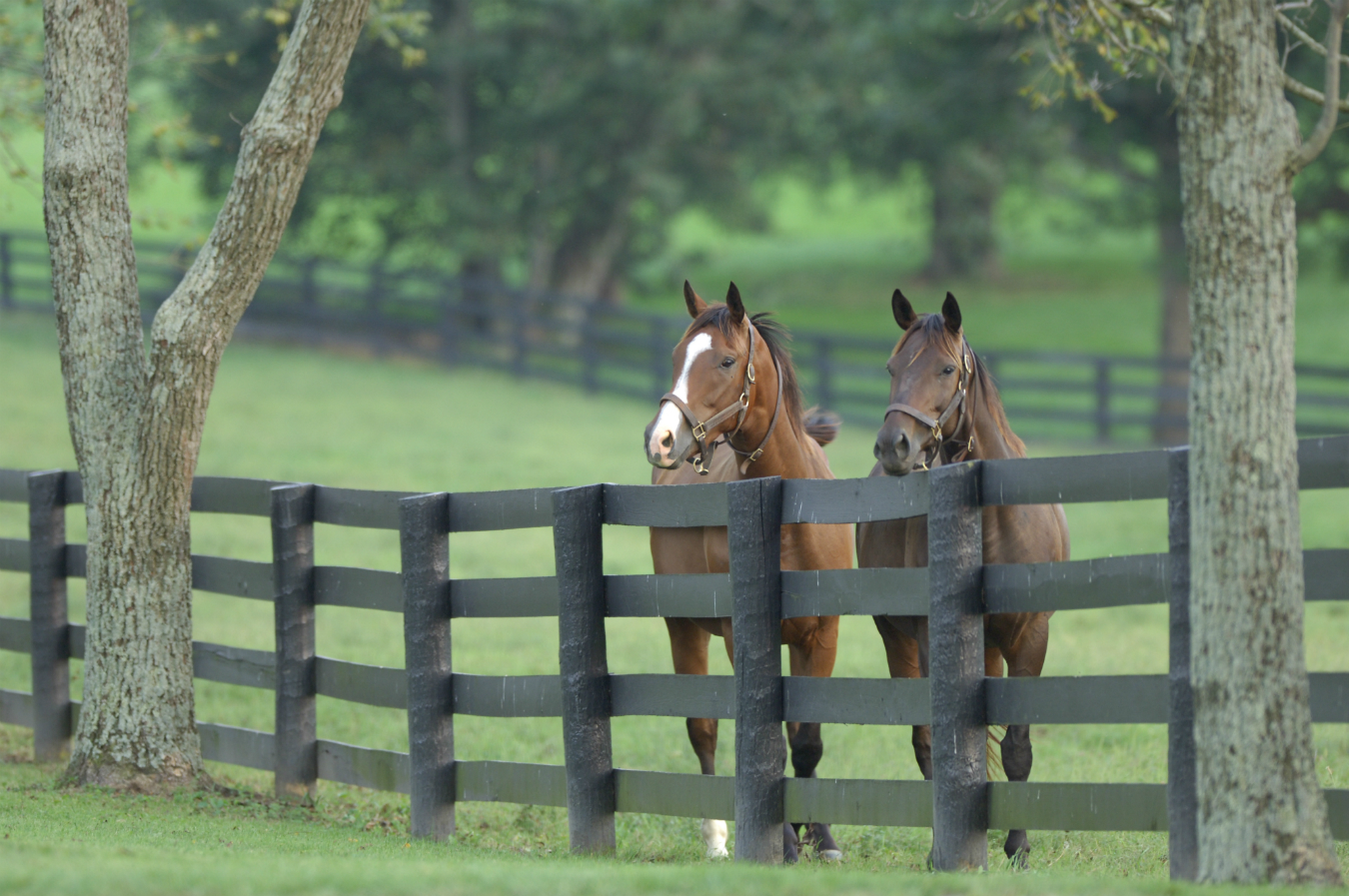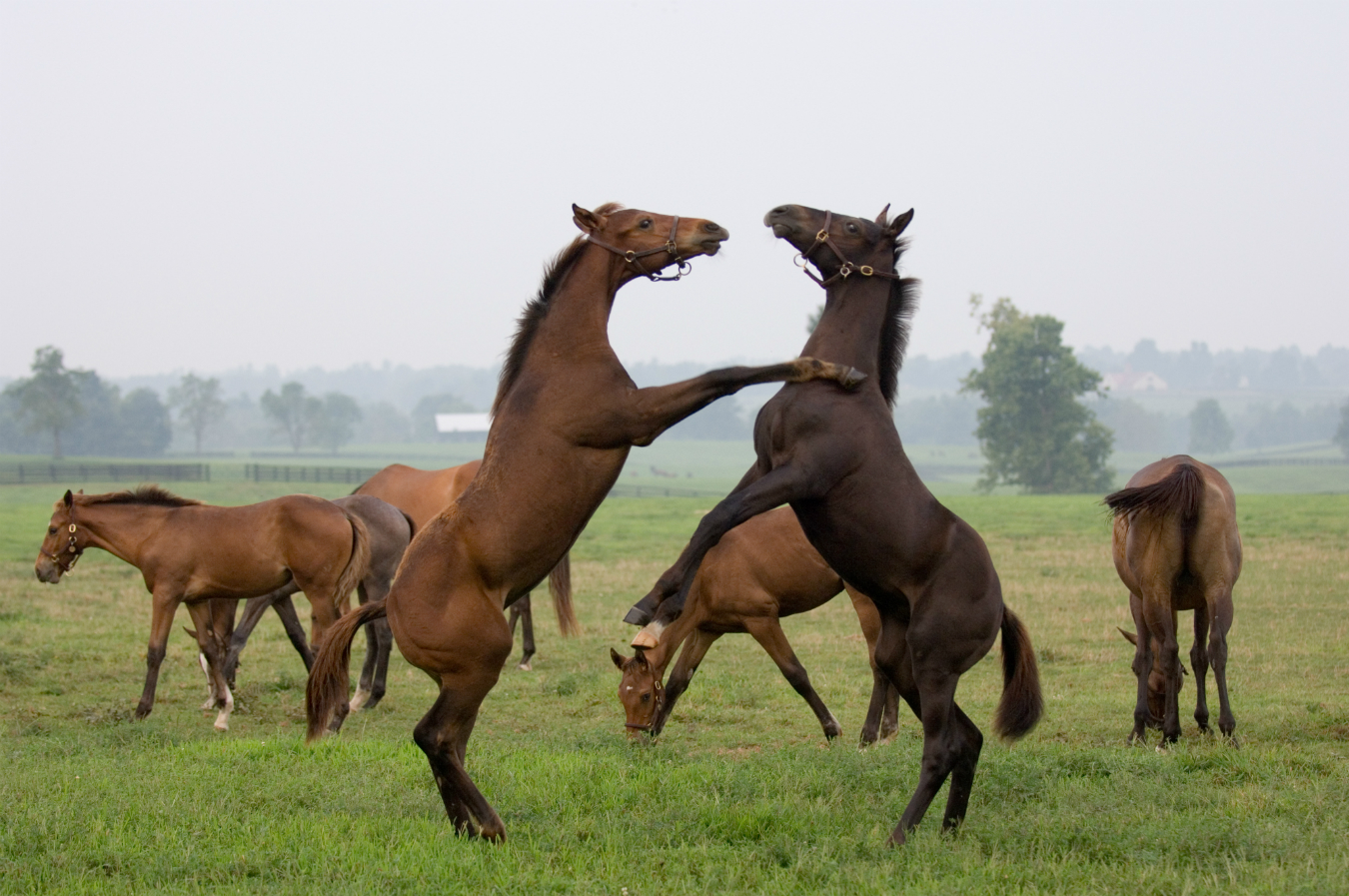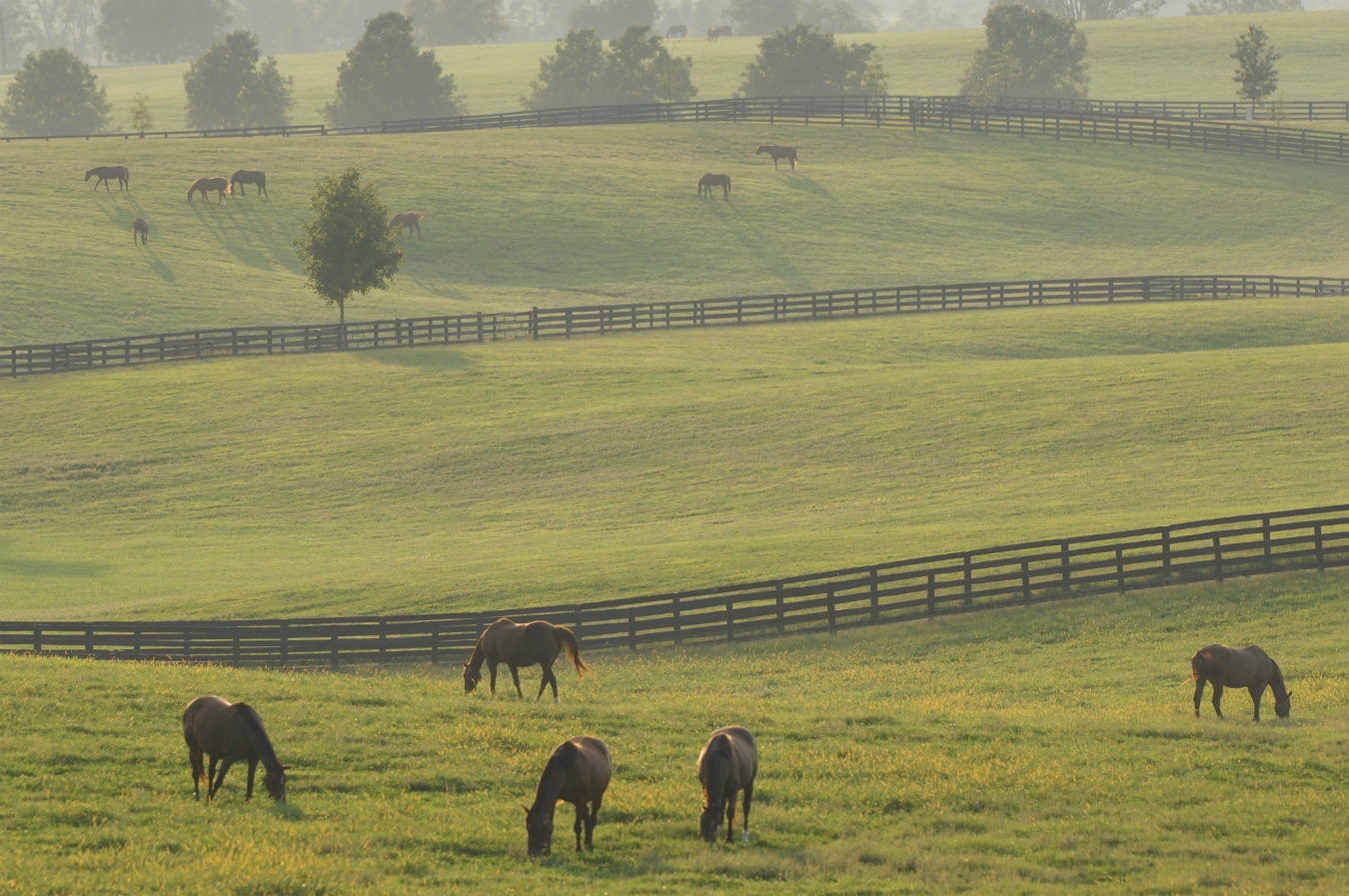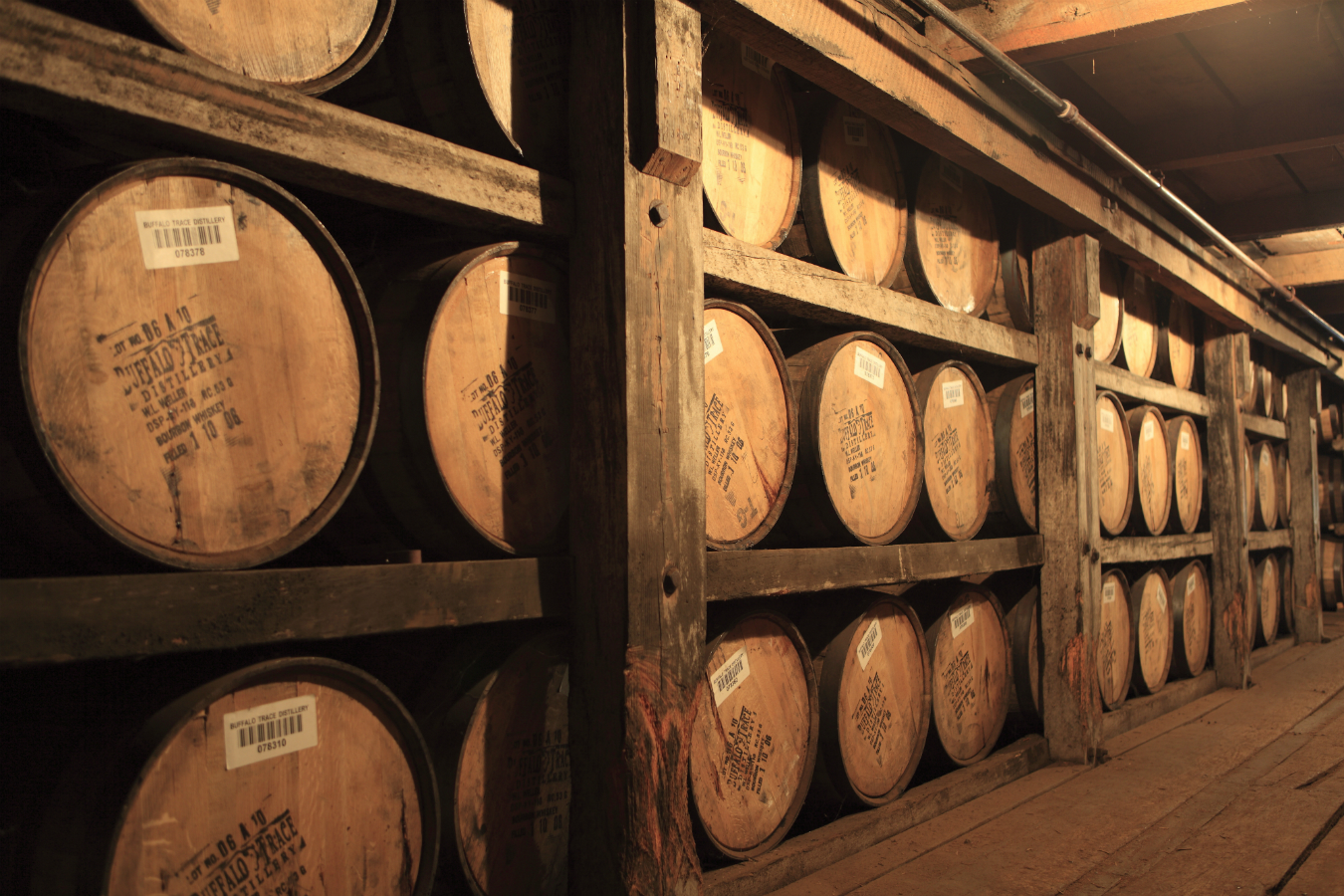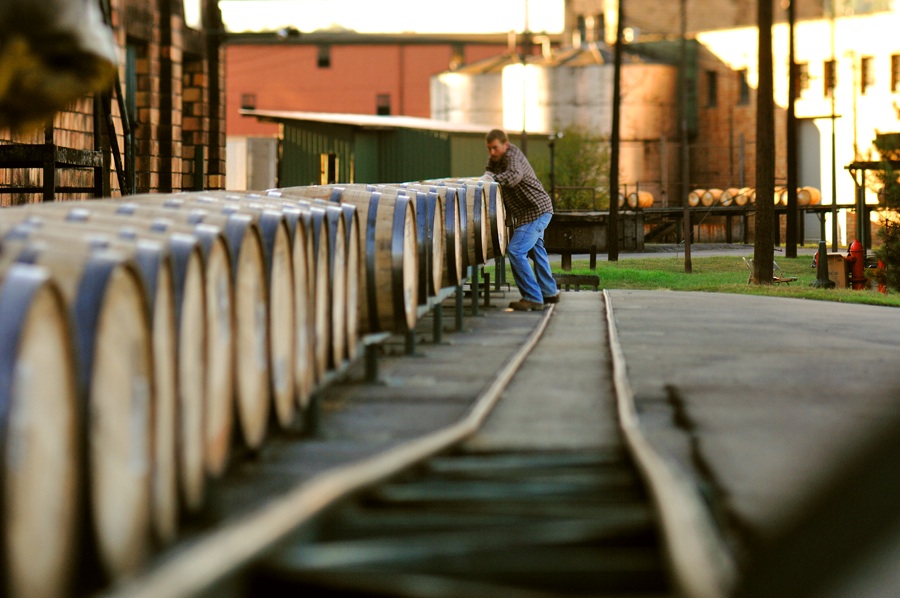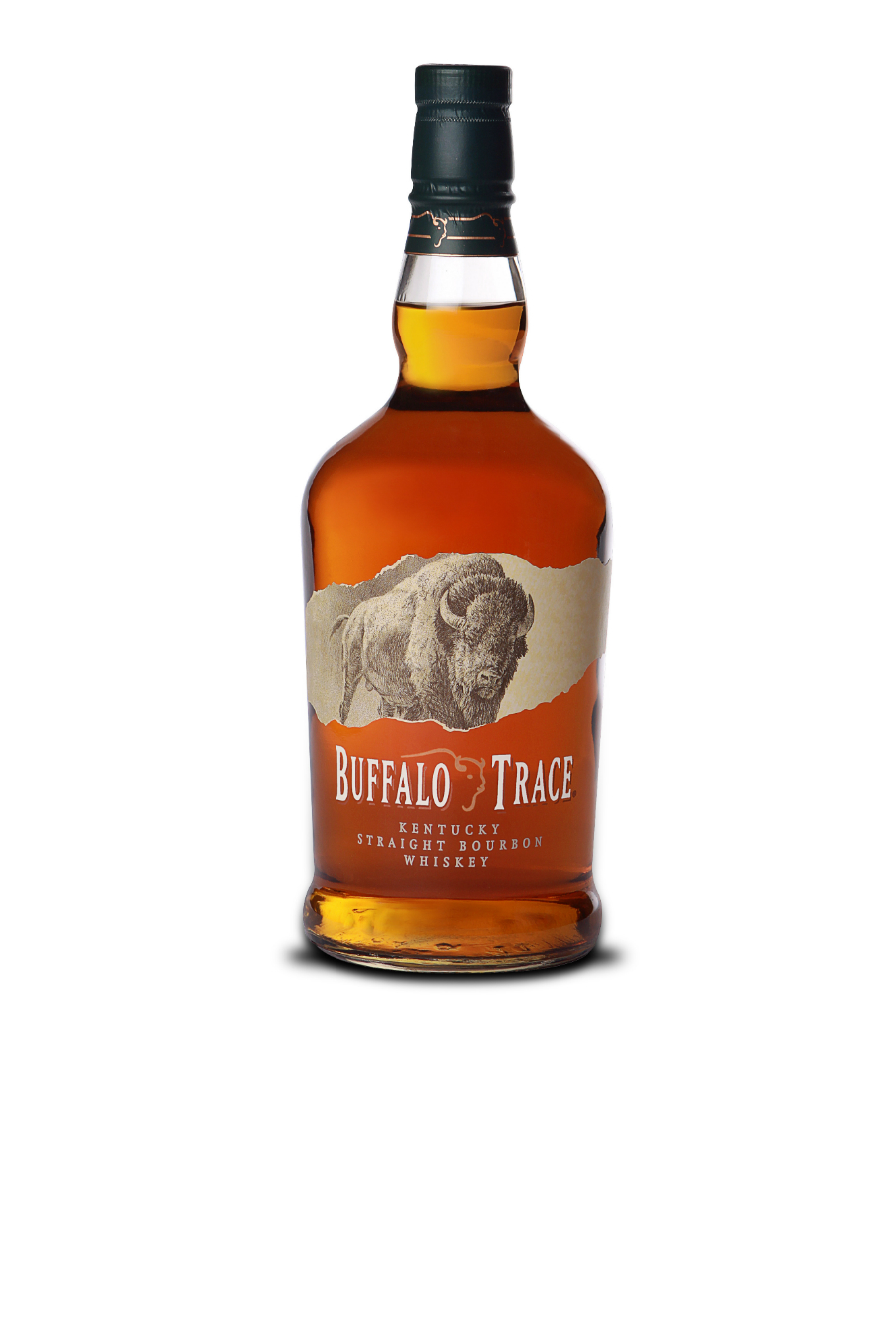The airport is known as Blue Grass, but as you begin your descent into Lexington, Kentucky, the view out your window is all green rolling hills laced with black-rail fences. Get closer, and you see the reason: you’ve just touched down in horse country.
It’s something in the water, they say—limestone. Limestone by definition contains at least 50 per cent calcium that builds horses’ bones strong. It also makes the water sweet for that other Kentucky specialty: bourbon. Most of the world’s supply is distilled here.
Price Bell, sixth-generation horseman at Mill Ridge Farm (one of the few in Lexington that is still family-owned), tells me about the launch of Horse Country: an initiative to “open the gates” of thoroughbred racing to the public. Racing is known as the sport of kings, and up to now only the elite have been able to experience these magnificent multi-million-dollar equine athletes up close. Horse Country aims to change that with guided tours of top stallion farms, nurseries with mares and foals, veterinary clinics, and equine feed mills. Because, as Bell’s grandmother Alice Chandler says: “If you let the horse breathe on you, you will fall in love forever.”
She’s right, I realize, standing next to American Pharoah on a tour of Coolmore, smiling like a teenager with a crush. This is not just any horse—he’s Wayne Gretzky, Michael Jordan, and Brad Pitt rolled into one, the first ever to win the grand slam of horse racing: the Kentucky Derby, the Preakness, the Belmont Stakes, and the Breeders’ Cup Classic. And he did it all in one year.
Pharoah’s job now is to pass on those champion genes. Over the spring and summer, he mated with or “covered” 200 mares for a fee of $200,000 each. Early next year, his first crop—190 foals—will be born. Will they be fast like their famous father? Odds are slim. Less than one per cent of foals grow up to win the top races. Pedigree, patience, and luck all play a part. As Bell says, “they are not machines, and it’s not an overnight business.”
Neither is bourbon, I think, as I walk through Buffalo Trace Distillery. Bourbon is made up of corn, rye, and malted barley, but the most important ingredient is time spent in oak barrels. Charred within and used only once, the barrel is the rockstar, and time inside it makes bourbon rich, complex, and unique. No two barrels taste the same. Somewhere, amidst the hundreds of thousands of barrels here, there are a few that in 15, 20, even 23 years are destined to become Buffalo Trace’s precious sipping elixir known as Pappy Van Winkle, which sells for as much as $9,300 USD.
Barrels go in at 500 pounds but weigh 300 when they mature, so inside the warehouse, the smell of evaporating bourbon is sweet and intoxicating. They call it the angel’s share. At the end of the tour, people crowd around the tasting bar for “a big old Kentucky hug.” Gulping is discouraged here. Sip and savor instead; it’s called the whiskey chew.
The next day in the dark wee hours, I meet Bell to watch the morning workout at Keeneland racetrack. Built during the Great Depression to “perpetuate and improve the sport and to provide a course that is intended to serve as a symbol of the fine traditions of thoroughbred racing,” Keeneland is part institution, part playground, and part temple.
Silhouettes of horses at the rail puff out steam in the dark as they wait for their turn to run. From the rail, trainers bark orders. As we head over to the track kitchen for some of the best bacon, biscuits, and racing gossip in town, Bell explains that Horse Country shares the passion that insiders have for the quest of breeding, raising, and racing a winner.
Later it’s show time, and the quiet, sacred paddock is transformed into a party. More than 40,000 spectators sip bourbon and check racing forms. Between contests, they crowd around to get a glimpse of the stars of this show as they walk the “red carpet” before getting called to the post. A female horse appears, dressed in silk, walking like a gladiator.
A young woman in jeans and boots—the horse’s groom—leads the way while the trainer and jockey strategize. The trumpet sounds; the jockey swings up on the horse’s back and takes the reins. The glamorous people follow.
Soon the horse will return, take off her crown of flowers, and be just a horse again. This lucky woman is the one she will breathe on.
See more. Visit our Travel section.

